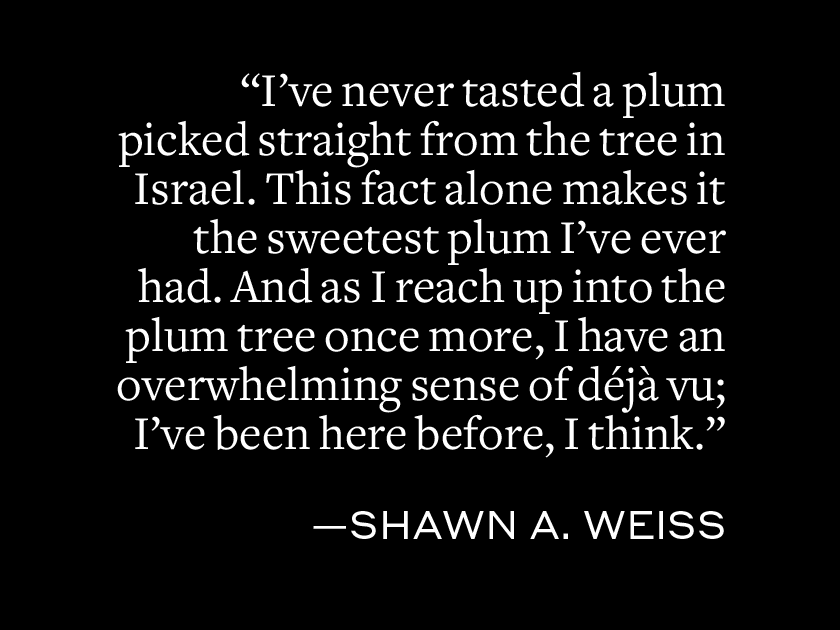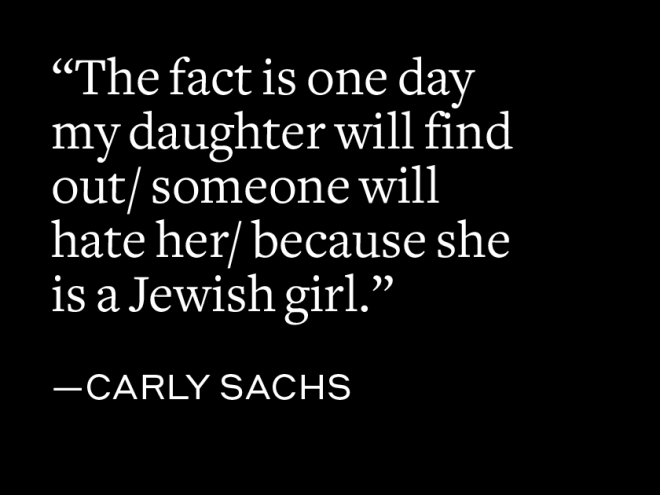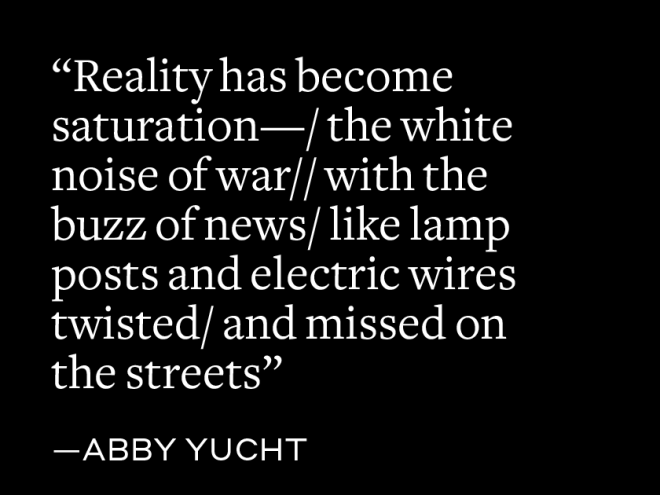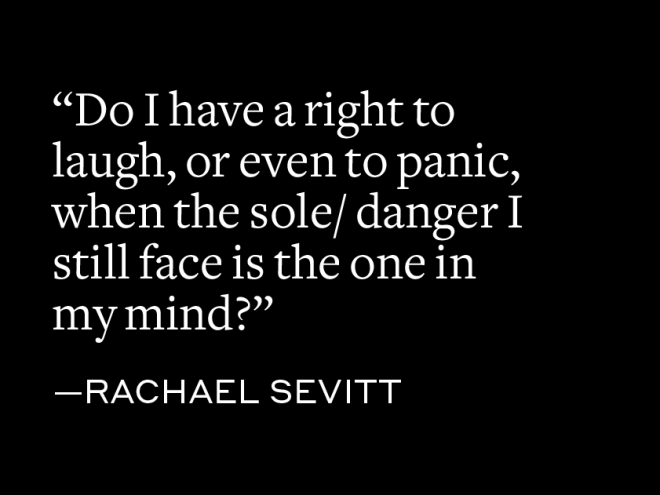
This piece is part of our Witnessing series, which shares pieces from Israeli authors and authors in Israel, as well as the experiences of Jewish writers around the globe in the aftermath of October 7th.
It is critical to understand history not just through the books that will be written later, but also through the first-hand testimonies and real-time accounting of events as they occur. At Jewish Book Council, we understand the value of these written testimonials and of sharing these individual experiences. It’s more important now than ever to give space to these voices and narratives.
- Black Hat
The cabin lights are turned off even though it is not yet night and all the shades on the EL AL flight from Los Angeles to Tel Aviv are closed. I’m reading Cynthia Ozick’s essay “Ruth” as the small overhead light illuminates the text before me, when I hear a voice just over my shoulder.
“We’re getting a minyan together if you want to join.” I look back into the darkness and see a young Orthodox rabbi dressed in a black coat and black hat. His small piercing eyes stare down at me through round, wire-rimmed glasses, and he sports a mountainous beard. I must look confused because he says, “I saw your yarmulke.” “Oh,” I say, and touch the back of my head self-consciously. It’s the first time I’ve worn a yarmulke on an airplane. I’m not used to someone walking up behind me and commenting on it. But this is a flight to Israel, I think. These are my people. Nonetheless, I reply, “No thank you,” and hold my Cynthia Ozick book up into the light as if to explain my abstention.
There was a time not long ago when I would have felt compelled by an Orthodox rabbi’s request to pray. I would have assumed that, because of his title, his Jewish knowledge was somehow greater than mine, therefore making him more Jewish than me. Whatever that might mean. Now that I’m a rabbinical student myself and I pray and study with regularity, I’m no longer under the illusion that one’s appearance directly correlates to one’s Jewishness, nor does one’s Jewishness easily correlate to one’s appearance. If only life were so simple! The discontinuous nature of reality simply does not allow it. In any case, I think he gets the point. “Okay,” the young rabbi says with a lugubrious shrug. Then he disappears once more into the darkness.
- Fully Jewish
In Israel, it’s easier to feel fully Jewish. How do I know this? I don’t. I have no proof, no evidence, other than the feeling I have walking through the streets of Jerusalem for the first time. It is a difficult feeling to describe, especially to someone who is not Jewish or to a Jew who has not been to Israel. But to a Jew who has been to Israel, it’s not hard to explain. They know exactly what you’re talking about. The feeling is like light shining through darkness, like wind hovering over the face of the deep.
Most people you walk past in Jerusalem, and throughout Israel, are Jewish. What this means is that almost every glance, every boker tov, is shared with a fellow Jew. In the US, we know this feeling of deep Jewish inclusion from living in certain neighborhoods or belonging to certain communities. But I have always felt that the feeling is partial, fleeting, temporary. In the US, Jews are Jews as Americans, but, in so many ways, are not fully Jewish in the same way that any Jew is fully Jewish in Israel simply by dint of being in Israel. After all, living in the land is a biblical mitzvot: “And you shall take possession of the land and settle in it” (Num 34:2). In the US, there is a default suppression of Jewishness — not as the result of intentional ill-will but as the secondary effect of living in a pluralistic, secular society. One’s Jewishness is always offset or neutralized by some other greater or lesser competing identity. No matter how submerged we may feel Jewishly, say, during service or chag, we are over-aware of the fact that the “normal” non-Jewish world is waiting for us just around the corner.
But in Israel there is no corner and no non-Jewish world waiting for us just around it. In Israel you’ve already returned! You’re there, in the land itself. For instance, in Jerusalem, I did not feel other. I did not feel like I had to explain myself, nor did anyone ask me to. Instead, those familiar Jewish faces I passed on the street smiled back at me, the light of their Jewish eyes reflected into my own.
- The Shape of Prayer
Let me tell you about a shul I visited in Jerusalem. From the outside it is unremarkable, a simple, unobtrusive design. But the inside. Oh, the inside! Let us first open the front doors, from the outside world into the lobby. This is the outer-layer. Peel it back and you enter the liminal space between the outside world and the sanctuary within. Here, in this nondescript foyer, this architectural in-between, several people rush this way and that. Services are about to begin. A member of the staff says, “Come in, come in.” I walk past him, opening the second set of doors from the lobby to the sanctuary, as if removing another layer.
At first, I don’t notice anything unusual. I remove a siddur from the bookshelf along the back wall and sit on a bench halfway between the entrance and the Ark of the Torah. I watch as the women take their seats in the separate, elevated areas on either side of the sanctuary, a kind of balcony from which they peer down on the men below. An older man sitting directly in front of me turns around and introduces himself. He’s from America. It doesn’t take long for us to realize we know someone in common. And then, without an introductory word or gesture, a tall, bearded thirty-something man steps onto the bimah. His body is rail-thin and resembles a long, crooked branch in danger of snapping. His voice is low and heavy as he intones the liturgy with a melancholy, jazzy inflection. I’ve never heard anything like it. His voice lulls me with its exquisite sadness, a feeling that seems to permeate this entire country.
And it is while I am mesmerized that I notice the simple beauty of the sanctuary itself. Shaped like a funnel, it’s widest at the back, narrowing until the front where the two outer walls converge in a point at the Ark of the Torah. The effect is that all the energy and attention of the sanctuary, including from the Shaliach Tzibbur, whose back is to the congregation, is focused nowhere else but on the Torah. The service is unidirectional; all eyes point forward; all energy is directed forward. There is no small talk. There is no sermon. There is only congregation, prayer, Torah, Hashem.
The service is over in an hour. The physical space and the spiritual matter contained within it are twined in a single purpose. As we exit the sanctuary, the congregation pours forth from the holy vessel, emptying out into the warm, sun-dappled morning.
- Seeds
In the Gush-Etzion-Hebron area of the West Bank, my traveling companions and I meet with two peace activists, an Israeli and a Palestinian. They sit side-by-side on metal folding chairs underneath a great eave and talk about the conflict. One line in particular resonates. The Israeli, a man from Seattle about my own age who made Aliyah many years ago, said: “The next time the Israelis and Palestinians sign a peace accord — that is, if we ever sign a peace accord again — the first line must say: ‘This is God’s land.’ Whatever treaty we sign needs to be based on that mutual understanding.” I write the line down in my little green notebook: This is God’s Land, underlining each word. What I like about this statement — besides its metaphysical veracity — is that it highlights the fact we are all guests on the earth. Sojourners, travelers. None of us owns the land under our feet. Acknowledging this, one’s motivation shifts from dominion to service. Instead of asking: How do I control the land? How do I bend the land to serve my needs? We ask: What is my role towards the land, which is God’s land? How can I serve?
- Cities of the Plain
Standing on the Alfei Manashe overlook, on the edge of the central West Bank, you can see the entire coastline of Israel, almost as far south as Gaza, and, if you strain your eyes, all the way north to Haifa. The Mediterranean Sea is right there — you can almost reach out and touch it. And there’s Tel Aviv just across from us, which looks more like a child’s model of a city than the real thing. Our guide, Yisrael, tells us this overlook was Jordanian territory until 1967. During the Six-Day War, Israel captured the overlook and has retained it since then. “Strategically speaking, it’s the most perfect vantage point in all of Israel,” he says, “One person could come up here with a rocket launcher and shut down the airport.” Looking out across the plain, I try to find Ben-Gurion Airport. Instead, all I see is destruction: fire and smoke. I find the view unsettling. I think of the phrase “cities of the Plain” and imagine God’s fire raining down on Sodom and Gomorrah (Gen. 13:12). Everything is so close, so fragile. And yet, these cities and this plain have survived far longer than reason or logic would seem to allow. There must be something holding it all together, something I cannot see from this overlook.
- Nova
We don’t plan on stopping at the Nova Music Festival site, but we have a few extra minutes, so Avi, our bus driver, pulls off the highway, down a dirt road, and into the large gravel parking lot.
“Ten minutes, then we have to go.” Yisrael tells us.
I step off the bus and hot wind lashes me in the face as dust swirls all around. I stagger towards the sea of Israeli flags just across the parking lot. There’s one flag and one photograph for each person killed, several hundred flags in total, all of them now beating frantically in the wind. Nearby, dozens of IDF soldiers, mostly young women, assault rifles slung across their shoulders, walk around, many of them openly weeping. I try to look at each photograph, but I am overwhelmed by the sheer number of Jewish faces, Jewish smiles, Jewish eyes, all of them now frozen in time. I can barely walk straight. The grief is at once destabilizing and intoxicating.
Just then a bomb explodes in the distance. It’s close. We’re only a mile from Gaza. An elderly woman walks past and I scan her deeply-etched face to gauge her reaction to the explosion. Nothing. Like so many here she appears lost in her own grief. Off to the left, I see a large tent, and head towards it. Inside, officers, soldiers, and family members recite the mourner’s kaddish. I join in—Yitgadal, v’yitkadash sh’mei raba—then quickly leave. I’m having trouble focusing. The agony and distress here is thick, palpable.
“Time to go.” someone from our group shouts into the wind.
I stagger back to the bus as another bomb explodes and I think: Good. All this grief and heat and sorrow is getting to me. I imagine fire and shrapnel ripping through a den of Hamas fighters somewhere just down the road. Good, I think again in my intoxication, good, good, good, good, good.
- Plum Farm
At a plum farm, somewhere in the Negev, I reach up into the plum tree, plucking the small ripe fruit from its branches. I place the plums into one of six plastic containers arrayed in the box below. I try not to taste the plums but I can’t help it. I take a bite. It doesn’t taste like the plums I’m used to which are sweeter and more purple in color. I’ve never tasted a plum picked straight from the tree in Israel. This fact alone makes it the sweetest plum I’ve ever had. And as I reach up into the plum tree once more, I have an overwhelming sense of déjà vu; I’ve been here before, I think. This is not the first time I’ve picked fruit from a tree in the Negev. I pick one plum after another, gathering five or six in my hand at a time, before gently laying them down in the containers. Once all six containers are filled, I carry the box back to the truck, setting it down in the shade. Someone hands me a plastic bottle of water; I drink it in a single gulp. The sun is heavy and penetrating. I scan the horizon and imagine several pick-up trucks filled with Hamas fighters headed our way. I imagine them attacking us. I imagine having a rifle, fighting back. Wiping the sweat from my eyes, I pick up another box with six empty plastic containers, and return to the plum trees. My hand, which is no longer my hand but the hand of generations, reaches up into the plum tree, higher and higher.
- What is Israel to Me?
One night as I walk through Jerusalem I’m struck by a thought— I need to be buried here. It’s not something I’ve thought about before. But as soon as I think it, it seems obvious, a hidden truth revealed. It makes perfect sense. If I’m buried in Israel, my grave will be a sign to my future generations. Your father, your grandfather, and your great-grandfather, the sign will say, is buried in Israel. Go to his grave, the sign will say. Go to Israel and wonder: How is it that my ancestor lived and died and was buried in Israel? Which is another way of asking: What is Israel to me?
And if I’m to be buried in Israel, the whisper continues, that means I need to live in Israel. I wouldn’t want to die somewhere else, somewhere not Israel, only to have my body shipped to Israel. That would be less than ideal. But I’d love nothing more than to live in Israel, it would be the honor of a lifetime. “One who is buried there will obtain atonement,” writes Maimonides in his Mishneh Torah, “it is as though the place (where one lies) were an altar which affects atonement, as it is said: ‘And the land makes expiation for His people’ (Deut. 32:43).”
The views and opinions expressed above are those of the author, based on their observations and experiences.
Support the work of Jewish Book Council and become a member today.



